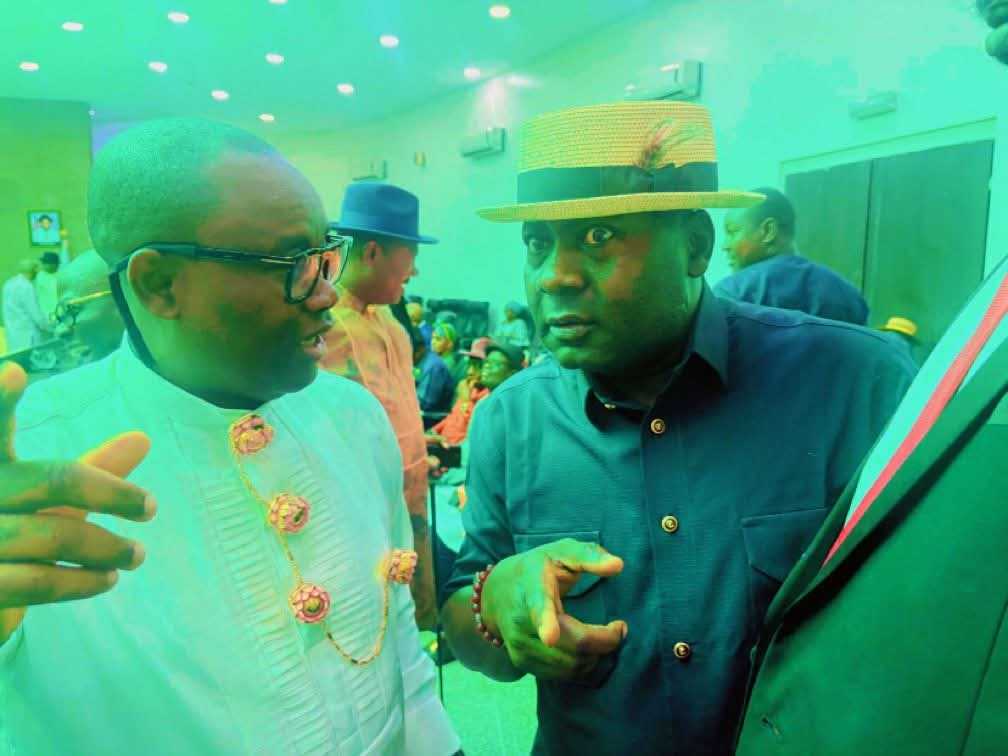STATE OF THE NATION: The Maltese Solution: How to Blend a Nation’s Woes Away. By Chidi Ekeh

The Maltese Solution: How to Blend a Nation’s Woes Away
In a nation where reality often reads like fiction, and where leadership can be best described as a fine blend of neglect and opportunism, it is only fitting that Nigeria, the giant of Africa, finds itself at the center of a global conspiracy involving a secret oil blending plant in the Mediterranean paradise of Malta. Yes, Malta! The picturesque island known for its azure waters, ancient architecture, and now, allegedly, as the offshore retreat of Nigeria’s first family.
In recent weeks, rumors have swirled faster than the naira’s value can plummet, suggesting that the president’s family, alongside top officials of the Nigerian National Petroleum Company (NNPC), own this mysterious plant. Naturally, the average Nigerian, struggling with the skyrocketing costs of fuel, food, and just about everything else, has been left to wonder: If only we could blend away our problems as efficiently as they blend oil in Malta!
But fear not, dear citizens, for the government’s response to this crisis—much like their response to everything else—is nothing short of theatrical. And as the nation grapples with a hunger crisis, economic collapse, and widespread protests, it becomes increasingly clear that satire may be the only lens through which the absurdity of the situation can be fully appreciated.
Ah, the reforms! A term that has been bandied about so frequently in Nigerian discourse that it has practically become a national mantra. And why wouldn’t it be? Reforms promise change, hope, and, most importantly, the illusion of progress. But let’s not be too cynical—we must commend the government for its bold vision. Who else could have thought that removing fuel subsidies, devaluing the currency, and tripling fuel prices would bring prosperity to the average Nigerian? Only the most visionary of leaders, surely.
The economic reforms, as explained by the government’s chief economic strategist (whose credentials remain as mysterious as the Bermuda Triangle), were meant to “free the economy from the shackles of subsidies.” And free it they did—freeing the average Nigerian from the burden of being able to afford basic necessities. After all, who needs affordable transportation or food when you can bask in the glory of macroeconomic stability?
The government’s economic policies have been nothing short of revolutionary. They have managed to achieve what no other administration has ever done: unite the country in collective suffering. From the bustling markets of Lagos to the remote villages in Borno, everyone is feeling the pinch. It’s a beautiful thing, really. A nation so diverse, now united under the banner of shared hardship.
But let’s not forget the pièce de résistance: the currency devaluation. The naira, once a proud symbol of Nigerian sovereignty, is now worth less than the paper it’s printed on. But fear not! The devaluation was a strategic move, designed to make Nigerian goods more competitive on the global market. Of course, this assumes there are Nigerian goods left to export, but let’s not get bogged down in details.
The real genius of these reforms lies in their ability to create opportunities. Yes, opportunities! For example, the skyrocketing fuel prices have created a booming market for wheelbarrows. With transportation costs through the roof, many Nigerians have taken to pushing their goods (and sometimes themselves) in wheelbarrows. It’s a new form of entrepreneurship, encouraged by the government’s commitment to innovation.
And let’s not overlook the impact on public health. The inability to afford fuel has led to a significant decrease in the use of private vehicles, reducing traffic congestion and air pollution. It’s a green revolution, Nigerian-style! The government has even hinted at nominating itself for a global environmental award. After all, who needs carbon emissions when you have the luxury of walking everywhere?
But the real star of our tale is the Maltesian blending plant, a mythical entity shrouded in as much mystery as it is in controversy. According to the latest whispers in the wind, this plant—rumored to be owned by none other than the First Family—is the epicenter of a grand conspiracy. A conspiracy so grand, in fact, that it makes your average telenovela plot look like child’s play.
The Maltesian blending plant is said to be a marvel of modern engineering. Its primary product? A special blend of fuel, designed to power the lavish lifestyles of Nigeria’s elite while leaving the masses to scrounge for kerosene. Of course, the government has vehemently denied any connection to the plant, dismissing the rumors as “fake news” spread by “enemies of progress.”
But one can’t help but admire the sheer audacity of it all. The blending plant has become the stuff of legend, with stories of secret oil shipments, offshore accounts, and luxury yachts. Some say the plant is located on a remote island in the Mediterranean, accessible only by private jet. Others claim it’s a state-of-the-art facility hidden deep within the Nigerian wilderness, protected by an army of loyalists. Wherever it is, the blending plant has become a symbol of everything that is wrong with the country’s leadership.
Yet, the government’s response to these rumors has been nothing short of masterful. Instead of addressing the allegations directly, they have chosen to focus on more important matters—like the president’s latest photo op at a local farm. Yes, nothing says “I care about the people” like a staged photo of the president holding a hoe while wearing a suit worth more than the average Nigerian’s annual salary.
And then there are the loyal spokespersons, ever ready to leap to the president’s defense. One particularly memorable statement came from a government official who, with a straight face, declared that the president couldn’t possibly own a blending plant because “he doesn’t even like Malta.” It was a masterstroke of deflection, worthy of a place in the annals of political spin.
But the Maltesian Mirage, as it has come to be known, refuses to fade away. It lingers in the public consciousness, a constant reminder of the widening gap between the rulers and the ruled. It is whispered about in markets, debated in beer parlors, and dissected on social media. And as the rumors grow, so too does the anger of a people who feel betrayed by those they once trusted.
The protests that have swept across Nigeria are not just a reaction to economic hardship—they are a cry for justice, for accountability, for change. But what do the protesters really want? The government, in its infinite wisdom, has dismissed the demonstrators as “misguided youths” who simply need a lesson in patriotism. After all, nothing says “I love my country” like silently enduring poverty and oppression.
But the protesters have been clear in their demands: the reinstatement of fuel subsidies, a reduction in food prices, an increase in the minimum wage, and—most audacious of all—an end to corruption. The government, of course, has responded with characteristic finesse: by deploying the police and military to “maintain order.” After all, what better way to show that you’re listening to the people than by beating them into submission?
The protests have been met with a mixture of bemusement and disdain by the political elite. One senator was even quoted as saying, “Why are they protesting? Don’t they know that Rome wasn’t built in a day?” Indeed, one must admire the senator’s historical knowledge, though one might also wonder if he realizes that Rome wasn’t built on the backs of starving citizens either.
But the government’s most ingenious response has been to blame the protests on foreign influences. Yes, according to official sources, the protests are not the result of legitimate grievances but are instead the work of shadowy international forces determined to destabilize Nigeria. The idea that ordinary Nigerians might be capable of independent thought and action is, apparently, too far-fetched to be taken seriously.
And so, the government has launched a full-scale investigation into these “external threats,” while conveniently ignoring the very real internal issues that have driven people to the streets. It’s a classic case of misdirection—focus the public’s attention on an imaginary enemy while the real culprits continue their business as usual.
But the people are not fooled. They see through the smoke and mirrors, the empty promises, and hollow rhetoric. They know that their struggles are not the result of some foreign conspiracy but of decades of mismanagement, corruption, and indifference. And so, they continue to march, to chant, to demand a better future.
In the end, the government’s response to the protests will likely go down in history as a textbook example of how not to handle a crisis. From their tone-deaf economic policies to their bungled attempts at damage control, the leadership has shown itself to be woefully out of touch with the realities faced by ordinary Nigerians.
But perhaps that’s the point. Perhaps the government’s true genius lies in its ability to maintain the status quo while giving the appearance of change. After all, as long as the people are kept busy protesting, they won’t have time to ask the really important questions—like who really owns that blending plant in Malta?
So, let us raise a glass to the Nigerian government, masters of the art of deflection, champions of the status quo, and true connoisseurs of irony. May their reign continue to provide us with endless material for satire, and may the people of Nigeria one day get the leadership they truly deserve.
Engineer Chidi Ekeh writes from Abuja





